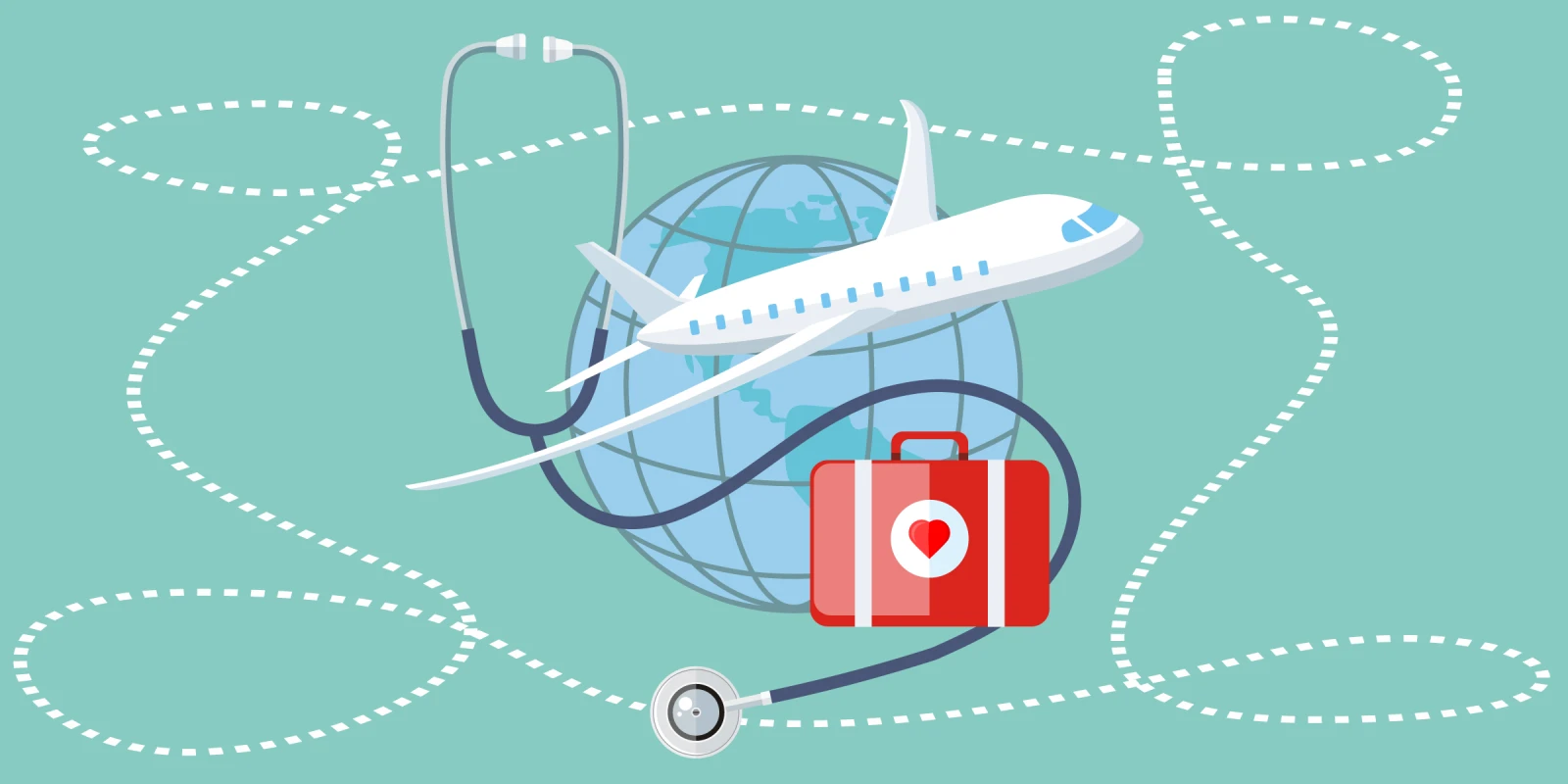Travel nursing has been receiving a lot of attention during COVID-19, as nurses leave the profession due to burnout and demand for replacements skyrocket. A recent Doximity poll found that 37% of voters have been, or currently are, travel nurses, and an additional 23% are interested in taking the leap. But what exactly do “travel nurses” themselves (or “locum tenens” nurses, as they’re also known) have to say about their profession?
For Renee Pyburn, a seasoned travel NP, “[Getting to see different places] was my main thing. Since I was in my 20s, I've always been really passionate about travel, especially overseas travel.” Initially an RN, NP Pyburn got her start as a locum tenens nurse in the early ‘90s, when she moved from the U.S. to the Middle East and eventually Africa. Upon her return to the U.S. several years ago, NP Pyburn obtained her psychiatric NP license and has been doing “locum” assignments ever since.
For Charlotta Turner, a family NP based in Maryland, the convenience and short-term nature of the job were the inciting factors. In summer 2013, she was planning on being out West for family reasons, so she took on a three-month travel assignment in Utah. She hasn’t accepted a locum job since, but noted that she would consider another assignment closer to home.
When asked about the highlights of their travel nurse experiences, both NP Pyburn and NP Turner mentioned the exposure to different cultures. During her time overseas and in places like the California-Mexico border, NP Pyburn “made some really close friends who are still my friends to this day. I got to participate in a lot of cultural experiences with them, [like] dinners, weddings, social events.”
NP Turner agreed: While living in Utah as an East Coaster, “It was nice to meet people from a different culture – I wasn't that familiar with the Mormon religion. That’s the advantage of it.”
Other opportunities available to traveling NPs include growth and personal development. NP Turner explained, “You have to be very flexible and confident in your abilities because you will be challenged, there’s no question. You have to be pretty self-assured and willing to accept changes.”
Opportunities for professional development abound as well. While living in Rwanda in the mid-2000s, NP Pyburn utilized her nursing background to help start the country’s first Masters in Nursing Program. In addition, while living in Saudi Arabia, Kuwait, and Qatar, she used her RN training to do “a lot of different things. I did informatics, I did education, I did project management, I did research, so I had a lot of really interesting job opportunities.”
Perhaps the most pragmatic reason for becoming a travel nurse, however, is the increase in pay. “The salaries are ridiculous,” said NP Turner. ”We were making 20-30 dollars more an hour than regular staff were.”
This pay gap between staff nurses and travel nurses can breed discord. NP Pyburn explained that when she was working in Rwanda, she and her American counterparts “were getting paid Western salaries. … so [the local staff] in a lot of ways resented us for making so much more money than they did. That kind of stuff was difficult.”
NP Turner expressed a similar sentiment: “As far as the effect on the regular staff, it’s a little demoralizing. … Personally, I think [hospitals] should hire locally. I don't think [using travel nurses] should be done on a regular basis; I think it should only be for emergencies.”
However, when emergencies do arise, NP Pyburn is glad that travel nurses are available for hire. She noted, “In the other settings that I was in, for the most part, they were really grateful for us … we were there because they couldn't fill the permanent position.”
In addition, when embarking on a new assignment, a travel NP must work to gain the trust of the local staff. NP Turner noted, “As a travel nurse you have to tread lightly – you have to be very polite. You have to be very grateful. The doctors have to get to know you to know they can trust you.”
Difficulties acclimating to the physical environment are also present. NP Pyburn explained that when moving to a new locale, one may experience “climate shock”: “My first locum job [in the U.S.] was upstate New York near the Canadian border. I had never lived in that kind of climate before. And I didn't know how to drive in it either. And I was just like, ‘How do people live like this?’ It took me a while.”
Making it work in a new place can also be challenging socially. Though NP Pyburn has forged lasting bonds with coworkers from her locum assignments, she admitted that things could be slow-going at first, especially in small towns. She shared, “It was difficult [during the New York assignment] because there wasn't a lot to do.”
NP Turner affirmed this perspective: “You’re yanked away from your family. … You can’t have young kids and do this. Mostly I see single nurses doing [travel nursing].”
These issues of social isolation have come to the fore during COVID-19. NP Pyburn shared that she took an assignment in California three weeks before the state shut down in early 2020, which meant she hadn’t yet had a chance to make friends. This led to a “really difficult year for me, mental health-wise.”
Working with patients struggling with their own mental health also took a toll on her: “We had a 30% increase in our request for services. And then a lot of our patients who were doing well or fairly well before COVID-19, because of all the stressors that came along with that, weren't doing well anymore. It was very stressful for us in that setting as mental health care providers. So I’ve … spent a long time looking for new opportunities, looking for a place where I wasn't so overloaded with patients that I felt like I wasn't providing good care.”
Today, NP Pyburn is working at a telepsychiatry clinic, which means she’s able to be slightly more mobile. For someone who proudly puts the travel in travel NP, this has been a godsend.
And yet, telemedicine is not an option for all travel NPs. As NP Turner noted, there is no national licensure, which means NPs can only work in “compact states” – states that have a legal relationship with one’s state of residence.
“In the NP world, we’re trying to get that national licensure now,” NP Turner explained, “so I could be here in Maryland and have a telemedicine visit with someone in Colorado or Massachusetts.”
If this push for national licensure succeeds, a large number of the cons of travel nursing – social isolation, climate shock – would be eliminated, and the field would become available to many more practitioners. In light of COVID-19, proponents believe an increase in available nurses could only be a good thing.
Have you ever tried, or considered trying, travel nursing? Share your thoughts and experiences in the comments below!
What would you like to read about? Share your suggestions here.
Image: robuart / gettyimages







